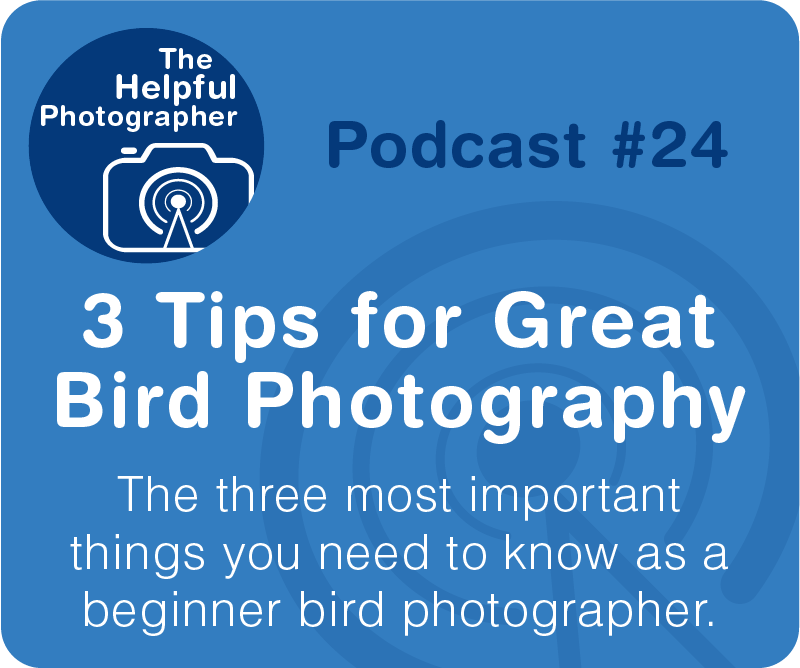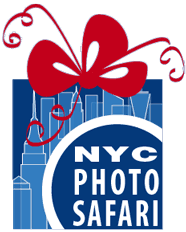3 Tips for Great Bird Photography
Photo Tips Podcast: 3 Tips for Great Bird Photography #24

iTunes
Google
Spotify
Tune In
Stitcher
RSS
Pandora
Transcript
3 Tips for Great Bird Photography
Z: I've received a lot of questions about photographing birds lately and since I pretty much have no experience in this area of photography, I've decided to invite our very own Allison Pretious to join me in today's podcast. Allison is a photographer based in Gravesend England and is a standing member of the British Royal Photographic Society and she's an amazing bird photographer.
Z: Hey Alison how are you doing?
AP: Hi Zim. Good Thank you. You?
Z: Good. How are things in Gravesend?
AP: Very dark, it gets very dark in the winter quickly so we have very short days, which is quite sad really.
Z: So less shooting time in other words.
AP: Yeah, less shooting time. Less time outside.
Z: And that's why I don't live there. Hey, so as you know the reason I'm calling you today is to get some advice for beginning bird photographers. You're our resident expert on shooting birds and I know that you've been doing it for years and years, and you’ve spent a ridiculous numbers of hours out in the field. So I’m wondering, what is the most important piece of advice you can give to our listeners about how to shoot birds if they're just starting out?
AP: If you're just starting out, the thing to do is to start simple, the very first thing you need to do is get yourself a bird identification book. Where you can learn their habits, what time of the year they’re in certain places, what they like to eat, where you're going to find them. So what I suggest really is to start your own backyard. There's loads of different bird foods available to everybody now, and it depends on what sort of birds you want to attract to your garden. But you know, if you’re going to attract Tits they like seeds, Blackbirds like raisins, parakeets like peanuts, and in fact just recently I had a pair of parakeets come into my garden and so I’ve stocked up my feeders on peanuts, and they’re now regular visitors so that’s good.
Z: Okay, wait a second parakeets are native to England?
AP: They are now, yes, apparently they came over from Spain, and they hit all the coastal resorts first but they’re gradually creeping inland.
Z: Wow. So in other words your main piece of advice here is do your homework.
AP: Exactly. Your need to know their habits, what they like to do, what they don’t like to do. What food they want. Definitely get a book.
Z: And you're saying let's start in your backyard. And this is great because we're heading into winter and honestly I really don't want to go out in the forest, and sit in the forest too long because I'm in the northeast and it's kind of cold out there. So we can start attracting local birds to our own backyards if we know what the local birds like to eat.
AP: That’s exactly it. You need to the right food down for what birds you want to attract. I mean Goldfinch are lovely birds but they only eat one thing, like Nijer seeds, so you need to put the right foods down to attract the sort of birds you want and water, water is very important as well, they like to drink and they like to bath, so I put a big saucer down in a place where I know I’m going to get a good photo if the light is right, and they learn it’s there and they will come back time and time again.
Z: So in other words your backyard bird restaurant has to have good food and good drink for the birds, is that right?
AP: That’s exactly it, and not only that, mine get good dog hair. Because when the Blue Tits were nesting in my next box I have in my garden, luckily I get visitors every year to that. The dog hair is like a lining for their nest. So I place the hair into the hedge, wait for the Blue Tits to come along. Shot a few shots, and I got one of those shots published in the Country Farm Magazine. So I was really really pleased with that.
Z: That's great but I never mind that where the heck you getting dog hair.
AP: Off my dog! I’ve got a Springer Spaniel from Dallas.
Z: Okay so in order to birds I also need a dog?
AP: You're probably better off without the dog; you know you want to catch the bird, and in my garden which is quite small, you know she puts them off. But then saying that when I am out in the field and I'm looking for where birds are, she flushes them out for me. There’s pros and cons to that.
Z: In other words your backyard bird restaurant, you’re not only just providing food but you're providing shelter for the birds too is that correct?
AP: That’s correct, yea.
Z: So here's another question for you what about cat hair can you use cat hair?
AP: I suppose so, I mean where I go over the marshes there’s lots of ponies, so I often pick up horse’s hair. Anything furry, they like to line their nests with.
Z: Because you know like fifty percent of all households in the United States have cats.
AP: Oh, right. I’m sure cat hair would work just as well as dog or horse hair.
Z: One other thing, so where you're putting your feeder and your water up are you looking at lighting at all and positioning that for optimal light?
AP: Yes I do do that, I also make sure they’ve got a safe place to go in and out of the feeders. So they like a bit of cover. So if you park it up against a hedge, they can nip into the hedge or by a tree so they can nip in and out of the tree. I always position mine for the light as well.
Z: Okay so food, shelter, and atmosphere.
AP: That’s right, know their habits.
Z: Wow, they are picky critters aren’t they?
AP: And some birds you only get for a couple of months a year, like the Cookoos they come in My and they’re gone by June. Also the Wax Wings, there’s no point in looking for a Wax Wing in the summer because they’re a winter visitor, this is why I can’t stress how important a good bird guide is. Plus when you're out and you see one and you can’t identify it, take a shot of it, when you go home put it on your computer, and then you can identify it with that really good bird book that you bought.
Z: So that’ll help ensure success next time, because now you know what you’ve got and you can get ready and make sure you have everything prepared for that bird.
AP: That’s right.
Z: Any last bits of advice.
AP: No not really you just need to be patient, attract the birds. Once they know foods there, they will come time and time again so you need to be a regular; you know it's no a good topping off all your feeders on a Monday, they’re empty by Wednesday, and you don’t do it again until the following week. You know birds won’t be happy with that you know a need a constant supply if you're going to keep birds in your garden.
Z: So in other words you need a really high yelp rating for your bird restaurant.
AP: You do.
Z: Good deal, I think we got it: study the birds make sure they have everything they need food, shelter, atmosphere, and make sure everything is in a good spot for you to take the shot. And go from there.
AP: That's right yeah.
Z: Okay I'm gonna go out shoot for a couple weeks I'm pretty sure we have some technical questions, is it okay if I call you again and get those questions answered?
AP: Oh, of course I’m all for educating people about birds.
Z: Thank you so much, enjoy the rest of your evening and I'll talk to you in a couple weeks.
AP: Cheers Zim, thank you.
Z: All right bye!











